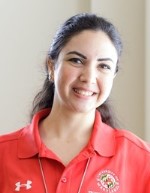as faced by Millennials in Developing Countries
SECOND EDITION
By Jailane Atef Amer
Cairo, Egypt, and
Washington, DC, USA
ABSTRACT
Basically, this presentation will show what is happening in the industry in developing countries Vs USA and how does a millennial look at it and fit into it. As we all know that the culture of each country is one of the major aspects to take into account in stakeholder management when referring to millennials; whether they manage a project team or they are being managed by project leaders. No doubt that each country has its own different working environment.
In developing countries, the culture and the nature of each project play an important role in CPM. Currently many case studies show that it’s not anymore about the waterfall process or the new agility techniques that matter, however, it’s about how to be creative and adapt to the nature of each project in all its circumstances since each project varies in its location, time, budget and resources.
Of course, it is very beneficial to study theories but also its more important to learn from our mistakes and be down to earth; maybe we can think of new holistic approaches or come up with a model that can be used later as a tool for managing each project independently.
Also, this paper aims at understanding what challenges are, how they are formed and how they are perceived by millennials. Research involves doing a deep dive study into the mindset of millennials at the industry today and the understanding of major concerns of the industry.
INTRODUCTION
“Project” is a temporary endeavor undertaken to create a unique product, service, or result, as defined in PMBOK guide sixth edition. The keyword in this definition is the word “unique” because one has to understand that each project has to be treated independently based on many factors in order to fulfill its objectives successfully and attain its strategic position.
From my experience, managing projects in developing countries has become very challenging especially in the construction industry as the waterfall project life cycle has to be integrated and all project team and stakeholders have to understand the terms adaptability and flexibility.
All project managers are aware of the project life cycle and how projects are being managed throughout all the knowledge areas and process groups.

Figure 1. Project Life Cycle
This paper will mainly focus on the challenges faced in developing countries and the importance of having a new generation of flexible and creative project managers in the construction field. And accordingly, the paper will review the changes happened in the science of project management that is now reflected in the PMBOK sixth edition.
EVERYTHING IS CHANGING
Project Management Institute noticed that the distance between what is really happening in the market and theories written and studied in books started getting wider so they tried to respond to bridge the gap. And from here, all changes happened from PMBOK 5th to 6th took place.
First of all, some control processes have been renamed. They exchanged the word control with the word monitor which gives more sense of empowerment than controlling. As PMBOK 6th edition is focusing more on adapting, facilitating and monitoring.
More…
To read entire paper, click here
Editor’s note: Second Editions are previously published papers that have continued relevance in today’s project management world, or which were originally published in conference proceedings or in a language other than English. Original publication acknowledged; authors retain copyright. This paper was originally presented at the 7th Annual University of Maryland PM Symposium in May 2020. It is republished here with the permission of the author and conference organizers.
How to cite this paper: Amer, J.A. (2020). Challenges in Construction Project Management as faced by Millennials in Developing Countries; presented at the 7th Annual University of Maryland Project Management Symposium, College Park, Maryland, USA in May 2020; PM World Journal, Vol. IX, Issue VII, July. Available online at https://pmworldlibrary.net/wp-content/uploads/2020/07/pmwj95-Jul2020-Amer-challenges-in-construction-project-management2.pdf
About the Author

Jailane Atef Amer
Cairo, Egypt
Washington, DC, USA
![]()
Jailane Amer, PMP, Born and raised in Cairo – Egypt, she graduated from Cairo University, Faculty of Engineering, Architecture and Engineering technology program in 2013. She conducted several studies related to project management starting 2015 with mini MBA from Cairo University, then she took her Project management professional – PMP- certification. While studying for her Bachelor’s degree, she attended several workshops related to sustainable architecture and environmental studies at Lincoln School of Architecture, Lincoln University, UK. She was also chosen to represent Cairo University in workshops and architecture competitions at the American University in Cairo. She also participated in architectural design workshops with students from Politecnico Di Milano University, Italy at Cairo University.
In 2015, she was working as a teaching assistant at the German University in Cairo for urban economics course. She worked as an architect in several reputable engineering consultant companies. In 2017, she joined a community development project as a project coordinator. This project was a collaboration between Ain Shams University in Egypt and Stuttgart University in Germany that aimed to develop and turn the attention to the different hidden cultures in informal settlements.
She is now a PMI member in the Washington DC chapter and she aims to continue her academic studies in engineering management. Jailane has also started volunteering in social and educational reform activities. In 2019, she joined the Smithsonian National Air and Space Museum and participated in the project management symposium at the University of Maryland. She can be contacted at eng.jailane.a@gmail.com









